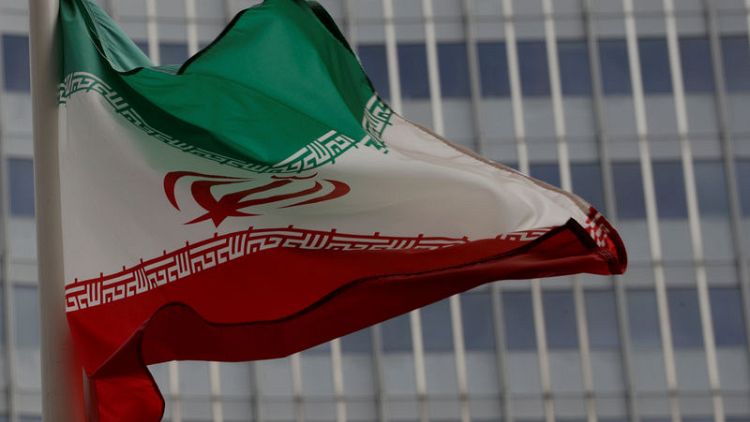By Parisa Hafezi
DUBAI (Reuters) - Iran said on Thursday it had resumed uranium enrichment at its underground Fordow nuclear plant, stepping further away from its 2015 nuclear deal with world powers after the United States pulled out of it.
The pact bans production of nuclear material at Fordow, a highly sensitive site that Iran hid from U.N. non-proliferation inspectors until its exposure in 2009. But with feedstock gas entering its centrifuges, the facility, built inside a mountain to withstand any air strikes, will move from the permitted status of research plant to being an active nuclear site.
"After all successful preparations..., injection of uranium gas into centrifuges started on Thursday at Fordow...The whole the process has been supervised by the inspectors of the U.N. nuclear watchdog," the Atomic Energy Organization of Iran (AEOI) said in a statement carried by state media.
Iran has gradually scaled back its commitments to the deal, under which it restrained its enrichment programme in exchange for the removal of most international sanctions, since the United States reneged on the agreement last year.
"The process will take a few hours to stabilise and by Saturday, when International Atomic Energy Agency inspectors will again visit the site, an...enrichment level of 4.5% will have been achieved," AEOI spokesman Behrouz Kamalvandi told state TV.
Enrichment of uranium to such a low level of fissile purity would be broadly suitable for civilian electricity generation. Ninety-percent purity is required for nuclear bomb fuel.
The United States withdrew from the deal in May 2018, calling it flawed to Iran's advantage, and reimposed sanctions on Iran aimed at crippling its oil-based economy.
Washington condemned Iran's reactivation of enrichment at Fordow and urged countries to increase pressure on Tehran.
"Iran's expansion of proliferation-sensitive activities raises concerns that Iran is positioning itself to have the option of a rapid nuclear breakout," U.S. Secretary of State Mike Pompeo said on Thursday.
"NUCLEAR EXTORTION"
"It is now time for all nations to reject this regime's nuclear extortion and take serious steps to increase pressure. Iran’s continued and numerous nuclear provocations demand such action," Pompeo added in a statement.
The biggest obstacle to building a nuclear weapon is stockpiling enough fissile material — highly enriched uranium or plutonium — for the core of a bomb. A central objective of the 2015 deal was to extend the time Iran would need to do that, if it chose to, to a year from about 2 to 3 months.
Under the 2018 pact, Iran agreed to turn Fordow into a "nuclear, physics and technology centre" where 1,044 centrifuges are used for purposes other than enrichment, such as producing stable isotopes, which have a variety of civil uses.
"All the centrifuges installed at Fordow are IR1 types. Uranium gas (UF6) was injected into four chains of IR1 centrifuges (696 centrifuges)," Kamalvandi said.
"Two other remaining chains of IR1 centrifuges (348 centrifuges) will be used for producing and enriching stable isotopes in the facility."
U.S. President Donald Trump's administration has renewed and intensified sanctions on Iran, slashing the country's economically vital crude oil exports by more than 80%.
Iran's move at Fordow will make it even harder for the deal's other parties, Britain, Germany, France, Russia, China and the European Union, to prevent its ultimate collapse.
Speaking at a news conference at the end of a visit to China, French President Emmanuel Macron called Iran's latest step "serious" and said he would speak with both Trump and the Iranians in coming days.
Iranian President Hassan Rouhani, co-architect of the 2015 agreement, has underlined that Tehran's breaches would be reversible if Washington scrapped sanctions and returned to it.
Responding to Washington's "maximum pressure" policy, Iran has bypassed restrictions of the deal step-by-step - including by breaching both its cap on stockpiled enriched uranium and on the fissile level of enrichment, set at 3.7%.
Iran said on Monday it was developing advanced centrifuges capable of refining uranium much faster than the IR1s, seen by many experts as antiquated and prone to breakdown.
Separately on Thursday, the European Union and United States expressed concern over Iran's brief detention of an inspector from the U.N. nuclear watchdog last week.
(Additional reporting by Humeyra Pamuka, David Brunnstrom and Susan Heavey; Editing by Mark Heinrich)
